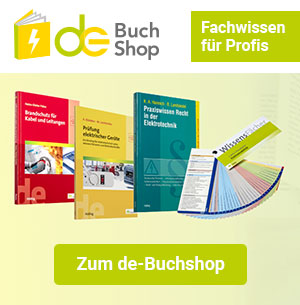Today is clean-up day for Lucy and Jack. As you can imagine Jack is a little bit old school in this respect and thinks that most things could still be very useful at some stage. Lucy, however, thinks that decluttering and simplifying your life is always good particularly when looking at the rubbish her uncle has kept so far. Jack has decided to swallow the pill but wants to give Lucy some more instruction in his special area.
Lucy: So, Uncle Jack, ready for the challenge? Believe it or not, having so much clutter in your house is really stressful and you will feel so relieved afterwards when we have got rid of everything.
Jack: Don’t misunderstand me, Lucy, but decluttering could also mean keeping things which might still be useful in the future. You never know.
Lucy: You mean save it for a rainy day. Oh no, this is not the right attitude, Uncle Jack. Do you really want to have a discussion about each and every item in your containers?
Jack: Of course, you can’t throw all of this in the garbage. Some items are only here because I didn’t have the time to put them back where they belong.
Lucy: Okay, so just tell me what items you want to keep, which can be discarded and which ones must be separated for recycling. You might even donate or sell some things, even though nothing really looks worth it. Look at these many containers you have, most of them are empty. Why would you want to keep them?
Jack: Well, there are always some small parts you can store in them.
Lucy: But what would you put inside an empty petrol can? If you need it, put it in the garage. That makes more sense. But I see that there´s a hole in it, so let´s get rid of it. By the way, do you have a special system of separating your waste?
Jack: Of course, we do. I don’t think that any western civilized country can afford to not separate the waste nowadays. Our waste is collected by different refuse vehicles because many materials are recycled. The waste is taken to a transfer station and then to a Materials Recovery Facility, short an MRF, where the recyclable materials are further separated into different materials and then recycled individually. Tins for food products e.g. are made of mild steel, drinks cans are made from aluminium. They are bought by recycling companies and are processed and turned into clean metal sheeting which is then sold and remade into new tins and cans.
Lucy: So, I suggest that we put all the metal things on one heap and then you can decide which ones have to be further separated. Well, what have we got here in this former paint bucket? All sorts of paint brushes and some of them not even cleaned so that they’re extremely rigid now. Moreover, a roll of plastic tape, still in working order and lots of plastic foil.
Jack: Put all this onto another heap because even different types of plastics need to be recycled individually. All the paper stuff can go together, even though paper, card and cardboard are also separated at the MRF into different grades. Newspapers and magazines e.g. are the highest grade. The different grades of material go to make different products. We can collect all this in a plastic sack or you put it into this plastic crate.
Lucy: Oh, what a nice array of glass bottles and jars here. What about them?
Jack: Glass can be recycled infinitely because it doesn’t lose its quality. The bottles and jars are crushed down and melted. We have glass collection points, so called Bottle Banks near shopping centres or in the local neighbourhood mostly next to collection points for other recyclable waste like paper, metal and plastics. Unfortunately, we don’t have the plants and infrastructure to recycle our own plastic waste in the UK. Therefore, millions of pounds are spent on sending the rubbish overseas. It mostly went to China which, however, now has imposed drastic restrictions. One reason was that the rubbish was so contaminated with other materials that it was too expensive to sort and recycle.
Lucy: There is also a big discussion about plastic and sustainability in Germany at the moment. We’ve started charging for plastic bags in the stores, but you only pay 20 cents per bag. I think that’s not enough because people are only too willing to pay it. The minimum, in my opinion, should be 1€ in Germany. When you think of all the animals in the sea and the birds that die because of all the plastic waste. Moreover, plastic bags break down slowly and leave toxic particles that can enter the food chain. Even recycling plastic bags produces harmful emissions and most of them can’t be recycled. But let´s not carried away here, what about all the electrical stuff in this big bucket?
Jack: That’s what we call WEEE, waste electrical and electronic equipment. A company buys all this, takes it apart and sells the component parts. It also includes batteries because they contain valuable heavy metals such as mercury, lead, cadmium, zinc, lithium and manganese. The metals can be reused but the toxic contents of the batteries are extremely harmful to the environment if they’re thrown away with black waste and to a landfill.
Lucy: What about garden and food waste here in England?
Jack: Mixed green garden and food waste is collected and taken directly to a local processing facility where the waste is checked, mixed, shredded and composted and then turned into soil conditioner you can buy. And Lucy if you decided one day to get rid of some of your clothing, you might give it to the Salvation Army which exports textiles for reuse and recycling. I haven’t seen you wearing the same thing twice, thus you could also consider it one day.
Lucy: But the difference between the two of us is that I still wear my clothes and you don’t use any of this rubbish here any longer.
Jack: Nevertheless, keep in mind that the same rules you are trying to teach me should apply to you, too.
Lucy: Oh, come on Uncle Jack, you wouldn´t want me to be the first woman in this world who really has not enough clothes to wear one day. (chuckles)
Jack: No, of course not, but I think you´re a long way from that. (smiles)
Material
A material is a substance from which things are made or can be made.
- Wood is a natural material that we find in nature and which can be used more or less immediately.
- Steel comes from a natural or »raw« material but must be processed before we can use it. Synthetic material is man-made because it doesn’t occur in nature. Mixed or composite materials are obtained by mixing different kinds of material.
- Stone is a building material.
- Crude oil is used as the raw material for making plastics.
- Uranium is a radioactive material.
Materials can be divided into metals and alloys, ferrous metals, non-ferrous metals, plastics, fluids, fabrics, ceramics and glasses and many more. Which material you choose will depend on the properties needed by the product.
Nouns and their opposites for material properties:
| a solid | a liquid/fluid | Feststoff | Flüssigkeit |
| a good insulator | a good conductor | gutes Isoliermaterial | guter elektrischer Leiter |
| an alkaline | an acid | Alkalimetall | Säure |
Adjectives to describe the properties of materials:
| rare | common | edel, selten | gewöhnlich |
| hazardous | safe | gefährlich, giftig | sicher, ungefährlich |
| ductile | brittle | duktil, verformbar | zerbrechlich, spröde, brüchig |
| flammable | non-flammable | leicht entflammbar | nicht entflammbar |
| soft | hard | weich, nachgiebig | hart, unnachgiebig |
| transparent | opaque | durchsichtig | trüb, undurchsichtig |
| soluble | insoluble | löslich | unlöslich |
| heavy | light | schwer | leicht |
- impact-resistant: does not break or crack easily when hit schlagfest, stoßfest
- non-corrosive: does not react with chemicals easily nicht korrodierend
- durable: lasts a long time before it wears out langlebig, strapazierfähig
Advantages and disadvantages of certain materials:
| Type of material: | Advantage: | Disadvantage: |
| metals and alloys | strong, stiff, ductile, conductive | fracture, fatigue |
| plastics | low cost, lightweight, resist corrosion | low strength, low stiffness |
| ceramics and glasses | strong, stiff, hard, resist temperature and corrosion | brittleness |
| composites | strong, stiff, lightweight | high cost, delamination |
Talking about products, their qualities and quantities
Names of materials are uncountable nouns (unzählbare Substantive) which means they cannot be put in the plural. You can’t use »a/an« with uncountable nouns. If you talk about quantities, you use some, a little, a lot of, all (of) the …
- I need some metal to repair this.
- I think we will need all (of) the plastic to produce this.
You can’t use numbers with uncountable nouns. If you want to count something, you must use »a piece of, a box of, two kilos of«.
- Can you hand me two pieces of wood?
All this does not only apply to materials but also to other uncountable expressions like money, information, time, experience, water, health etc.
- Can you bring me some water/a bottle of water?
Much, many, a lot of
Many is used for countable nouns in negative statements (verneinte Aussagen) and questions.
- There aren’t many »pure materials«.
- How many synthetic materials do we have?
Much is used for uncountable nouns in negative statements and questions.
- How much money do you have? But: I don’t have many coins. (coins are countable because you can put an »s« at the end)
- How much steel do you produce?
A lot of is used in affirmative statements (bejahte Aussagen) for countable (zählbar) and uncountable nouns. Countable nouns have an »s« at the end in the plural.
- I need a lot of equipment in my tool shop.
- A lot of money is spent on special tools.
- There are a lot of tools in the drawer.
Making comparisons When you talk about different types of material or products we often use comparatives (1.Steigerungsform) and superlatives (2.Steigerungsform). How you put an adjective in the comparative or superlative depends on the number of syllables (Silben) of the adjective. Adjectives with one syllable and adjectives with two syllables ending in -y:
- safe, safer, the safest simply add -er or -est at the end of the adjective
- heavy, heavier, the heaviest simply add –(i)er/-(i)est
- This metal is stronger but heavier than plastic.
Nearly all other adjectives with two and all with three or more syllables:
- hazardous, more hazardous, the most hazardous
- This is the safest and most efficient machine on the market.
Irregular adjectives
- good, better, the best
- bad, worse, the worst
- far, further, the furthest (weit)
- little, less, least (wenig)
- much/many, more, most
When we compare something in a sentence we can use:
- … than… This material is better than that. (…als…)
- not as … as … Plastic is not as strong as metal. (nicht so … wie…)
- as … as … This material is as expensive as the other one. (genauso …. wie…)
Little/few (wenig) Countable nouns are compared by using fewer and the fewest. With uncountable nouns you use less and the least.
- I ordered fewer screws this month than last month.
- I earn less money than you.
More and most are used for countable and uncountable nouns.
- More plastic is used nowadays than 50 years ago.
- Most technicians use good tools.
So much for today in this issue about less is more. Keeping things simple takes time and effort but will nevertheless save you time in the end. We will talk about electrical conductivity and electrical wiring in the next online issue. So, stay tuned!







